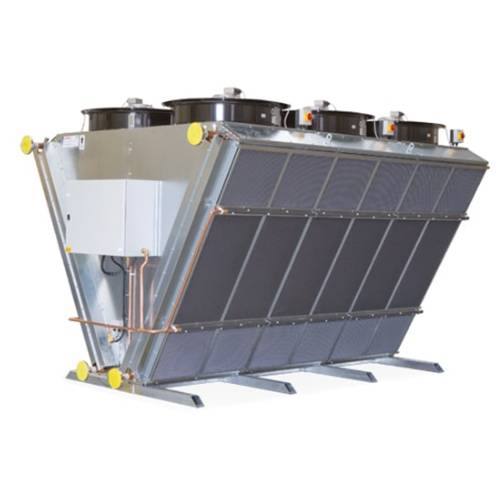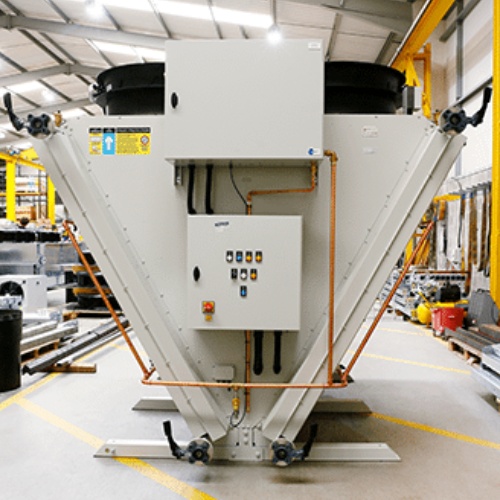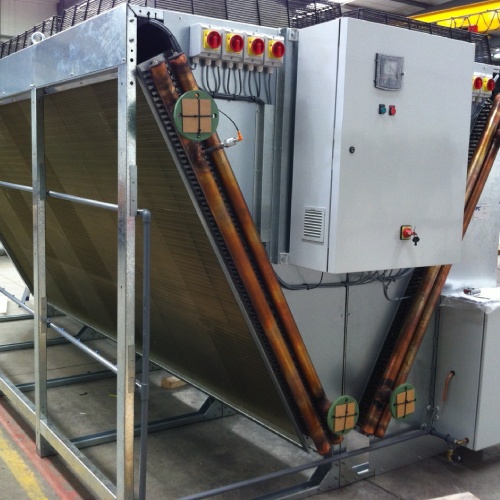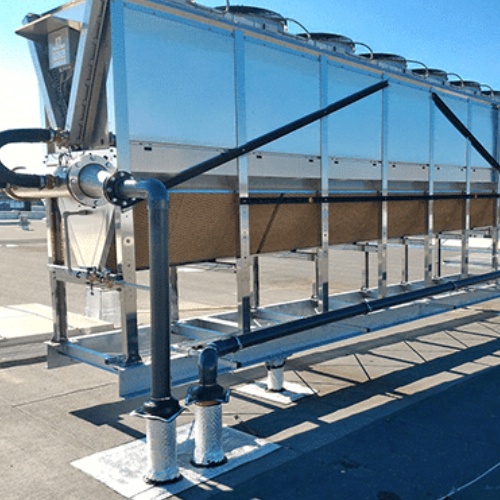Adiabatic Coolers
Product Highlights
Adiabatic Coolers
Adiabatic Coolers offer minimum footprint, low energy use and water supply temperatures similar to evaporative cooling towers. For the majority of the year the cooler operates as a dry air blast cooler reducing water costs to a minimum.
Premium Adiabatic Coolers
Unlike standard adiabatic coolers, our premium adiabatic coolers operate without external aerosols keeping the coil blocks dry, eliminate scaling and avoid the risk of the proliferation of bacteria such as legionella.
What is Adiabatic Cooling?
Adiabatic cooling is achieved by reducing the air inlet temperature being drawn over the coolers coil block. This reduced oncoming air temperature, achieved by creating a fine mist at the coolers air inlet, allows the cooler to supply water temperatures as low as 25°C in the Summer period.
Adiabatic Coolers vs Cooling Towers
Adiabatic Coolers reduce running costs, water use, chemical water treatment and stringent maintenance regimes associated with evaporative cooling towers.



